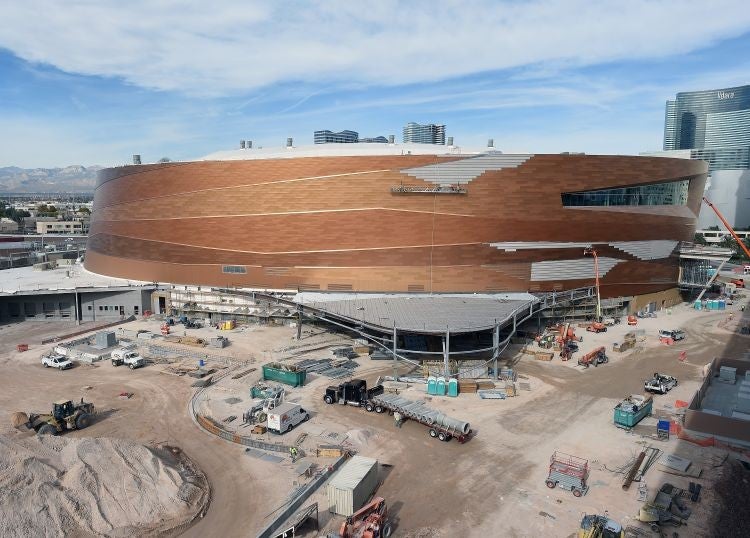Las Vegas economy begins to finally recover as more tourists than ever flock to city
But as Tim Walker reports, gambling is no longer the only game in town

For eight years, the square of brown dirt where the New Frontier casino once stood has sat empty in the looming shadow of the nearby Trump Hotel. The venue where Elvis Presley played his first ever Las Vegas show was demolished in 2007 to make way for a lavish new $5bn (£3.4bn) resort. But then came the economic crash, and the project was canned.
Recently, the 35-acre site at last showed signs of life, as workers were seen preparing the ground for a new luxury hotel-casino, Alon Las Vegas. The Australian hospitality and casino group Crown Resorts bought the plot in 2014 to build a modest structure by Sin City standards: 26 floors and 1,110 rooms. In the two decades before the recession, a new casino went up on the Las Vegas Strip approximately once a year. The Alon, by contrast, is just the second to break ground since 2005.
Las Vegas was the epicentre of the housing market meltdown – and when the casino banks crashed, so did its casinos. Earlier this year, however, work began on Resorts World Las Vegas, a $4bn resort development just north of the Alon site. Owned by the Malaysian Genting Group and targeted specifically at Chinese visitors, the 3,200-room hotel-casino is due to open in 2018.
“It is the biggest investment in Las Vegas since the crash,” said Professor Stephen Miller, director of the Centre for Business and Economic Research at the University of Nevada. “It’s a signal that the whole economy is recovering. Not only locally, but also nationally.”
Although hotels are still unable to command the room rates they did before the crash, more tourists than ever are flocking back to Las Vegas: more than 41 million in 2014, a record set to be broken this year. The 20,000-seat Las Vegas Arena is scheduled to open in April 2016. Unemployment in Nevada is above the US average, but falling steadily.
In the south-eastern suburbs, far from the Strip, work is also back under way on the Ascaya project, a luxury housing development that was once America’s largest excavation site and became emblematic of the housing market slowdown when construction was abruptly halted in 2009. Today, sleek, modernist homes with panoramic views of the city and surrounding desert are springing up on the artificial hillsides, thanks to resurgent demand for Ascaya’s $800,000-and-up properties.
However, things are less rosy for those on the lower rungs of the housing ladder. In recent months house prices in Las Vegas have at last stabilised, but home values remain an average of almost 40 per cent below their pre-recession peaks. Some 25 per cent of the city’s mortgage holders are still in negative equity, the highest rate of any major metropolitan area in the US. “The luxury market is hotter now than it was during the bubble,” said Steve Hawks, a local estate agent. “But the middle class has taken a big hit. The people benefiting from this housing ‘recovery’ are wealthy investors.”
One of the biggest shifts in the Las Vegas business model was already apparent before the recession. Thirty years ago, the Strip’s hotel-casinos earned almost 60 per cent of their revenue from gambling. Now that figure is less than 37 per cent, as a younger demographic saves its money to spend on Michelin-starred restaurants and bottle service at the city’s booming nightclubs.
Consultant Patrick Bosworth, a former executive at Wynn Resorts, said he expected Alon and Resorts World to “reflect the revolving business model of Las Vegas, by focusing more on other forms of leisure activity” than gambling.
Even if the Strip was making a comeback, Mr Bosworth pointed out, it wouldn’t be taking too many gambles. “People are being much more careful,” he said. “Alon has said that they’re planning a smaller project than many of the other mega-resorts. They’re adjusting to the realities of today and not assuming that the boom times are coming back again.”
Subscribe to Independent Premium to bookmark this article
Want to bookmark your favourite articles and stories to read or reference later? Start your Independent Premium subscription today.

Join our commenting forum
Join thought-provoking conversations, follow other Independent readers and see their replies